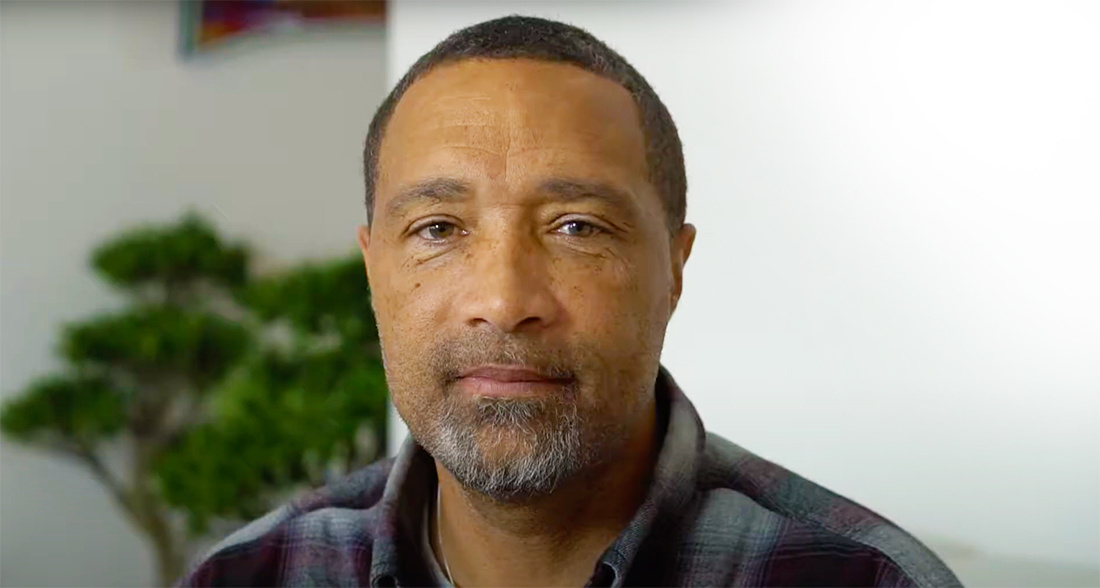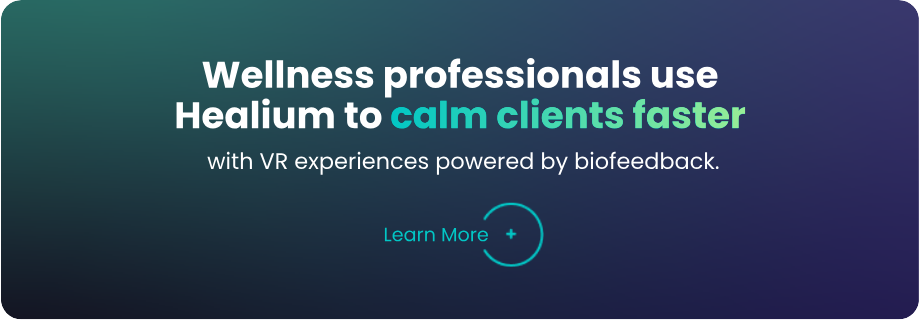Mataka spent 23 and a half years behind bars for a non-violent drug crime. He’s now using that experience to help others. He defines himself by being an educator, advocate, and devoted father. His antidote to trauma and stress: peace. How did he find peace post-incarceration?
We live in a society that is so overwhelmingly stressed. On top of that, we have unresolved issues that trace all the way back to our childhood. We just accept it as normal and deal with it in our own way.
“If you have these issues, this brokenness–what are you going to convey to the generations that come after you–your children, your grandchildren? We have to interrupt the cycle and introduce ways to achieve peace and bring our best selves to the world,” he explains.
Mataka recalls how much joy and escape that reading brought to him, especially when he was locked up.
“You know what I noticed? Life does not allow you the leisure time to read that prison does because you have life responsibilities. But let me tell you what I understand: In prison, there are still drugs. You can still engage in unhealthy coping mechanisms. You can get high but when you come down from that high, you still have the same problems so it drives you to look for relief. But for me, the thing that got me through to make myself a better person was reading. I realized that with a book I could take my mind anywhere I wanted to take it. I could achieve ‘highs’ but when I came down from that high, I brought something with me: the ability to take my mind to a different place and bring back the information with me to make myself a better person. That’s what got me through it.”
Mataka has a solution to help bring forth peace. It involves reading, visualization, and even integrating technology.
“Peace is achieved through conjuring up or having images in your mind because we think in words and pictures. We have our intelligence and our imagination. What’s the root word of imagination? Image. Visualization. How can we put in our minds the imagery that brings that natural peace inside of us to the surface and allows us to reach a relaxed state to combat the stresses and traumas of life?”
“Trauma isn’t just psychological. It alters your brain and your biochemistry. Scientists have shown how it impacts your brain structure, your digestive system, your overall health; and it’s been proven that people who live under functional trauma live 20 years less than people who don’t live under functional trauma.”

“If you have devices, like Healium, that give you visual imagery of peace, then that peace allows you the stability to move forward. These things are necessary because when you have these images or these devices that can assist you in achieving a state of peace not only does it do more for bringing out the best part of you and putting you in a state of relaxation–it extends your lifespan. What Healium has been able to do is tap into this technology that allows us to combat the most toxic thing that faces the family right now: trauma and stress.”
Further driving home his point about how images impact your brain, Mataka reflects on the current state of our media and maintaining a healthy media diet.
“The media gives us images. These images have dominated and saturated our minds in such a way that they pull the best part of us down and have us believe that it’s going to be impossible to change. So we just accept it and we move through this life thinking we’re incapable of doing anything and we accept things that we know are not right and we compromise ourselves. Any time you compromise yourself and you are not able to be you, it acts in a negative way on your being.”
By removing your exposure to these negative images and replacing them with empowering, uplifting, and positive ones, you can begin to reprogram your brain. Mataka goes one step further and stresses the importance of nurturing all of the senses as well.
“Multiple senses bring information to the brain. We taste, smell, feel, hear things that can help us bring peace to the brain, and transform your internal being.” Mataka says.
He focuses so heavily on starting within because you can’t help others until you heal yourself. The health of the individual is necessary for the health of the community. You can begin to transform the people in the environment in a positive way. However, the opposite is also true.
“Remember MLK said ‘Injustice anywhere is a threat to justice everywhere.’ One thing that’s toxic has the ability to make the whole environment toxic if it’s left unchecked. So if we’re operating in a toxic way, what do you think we’re bringing to the world? We owe ourselves peace and the ability to live our lives in the best way possible. We owe our families the ability to get the best of us. We deserve an opportunity to be happy.”
What does the future hold for Mataka Askari? Being a devoted father to his daughter is a huge motivator for him. He wants to empower her to have her own legacy. It’s that kind of forward-thinking that has enabled him to transform his life.
“I want to be the best father for her. Not just financially, but I want to equip her with an understanding that does not allow her to fall victim to self-doubt or influences that make her question her worth or her value for things that have no merit. I want my daughter to bring to this world the best part of her so that her legacy can be one that is enduring.”

His philosophy for his daughter and his community to thrive is through a strong education. “I’m a huge proponent of proper education. The word education comes from the word educe which means to draw out. It’s not necessarily a bunch of pouring in of information that makes you think along a particular path. But what it means is having a system set up to have your greatness and potential to be drawn out and unleashed onto the world in the best way possible. So I’m a proponent of whatever unlocks, uncovers, unburies, and removes every obstacle out of your way that impedes your ability to be the best you. It’s scientifically, theoretically, and otherwise impossible to be the best you when you’re under trauma and stress.”
At the beginning of Mataka’s story, he talked about how he had internalized unhealthy images and ideas about himself. He knew that to bring peace, he had to detoxify himself from those negative images and replace them with healthy ones.
His antidote to stress is peace. Mataka leaves us with something to reflect: “Even with all of these things that we’re out here doing–running businesses or helping feed families–the most important thing is, what legacy are you leaving? How are you leaving the world? Are you leaving it better than when you came in?”
 You can connect with Mataka Askari on Facebook and/or through email at matakaaskari@gmail.com.
You can connect with Mataka Askari on Facebook and/or through email at matakaaskari@gmail.com.







